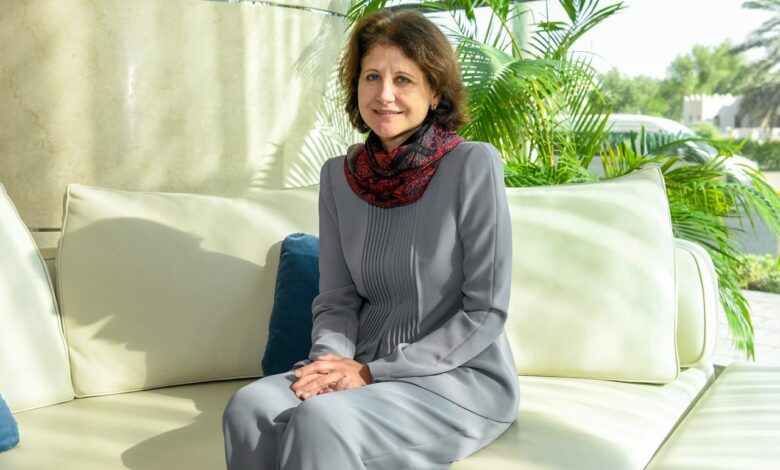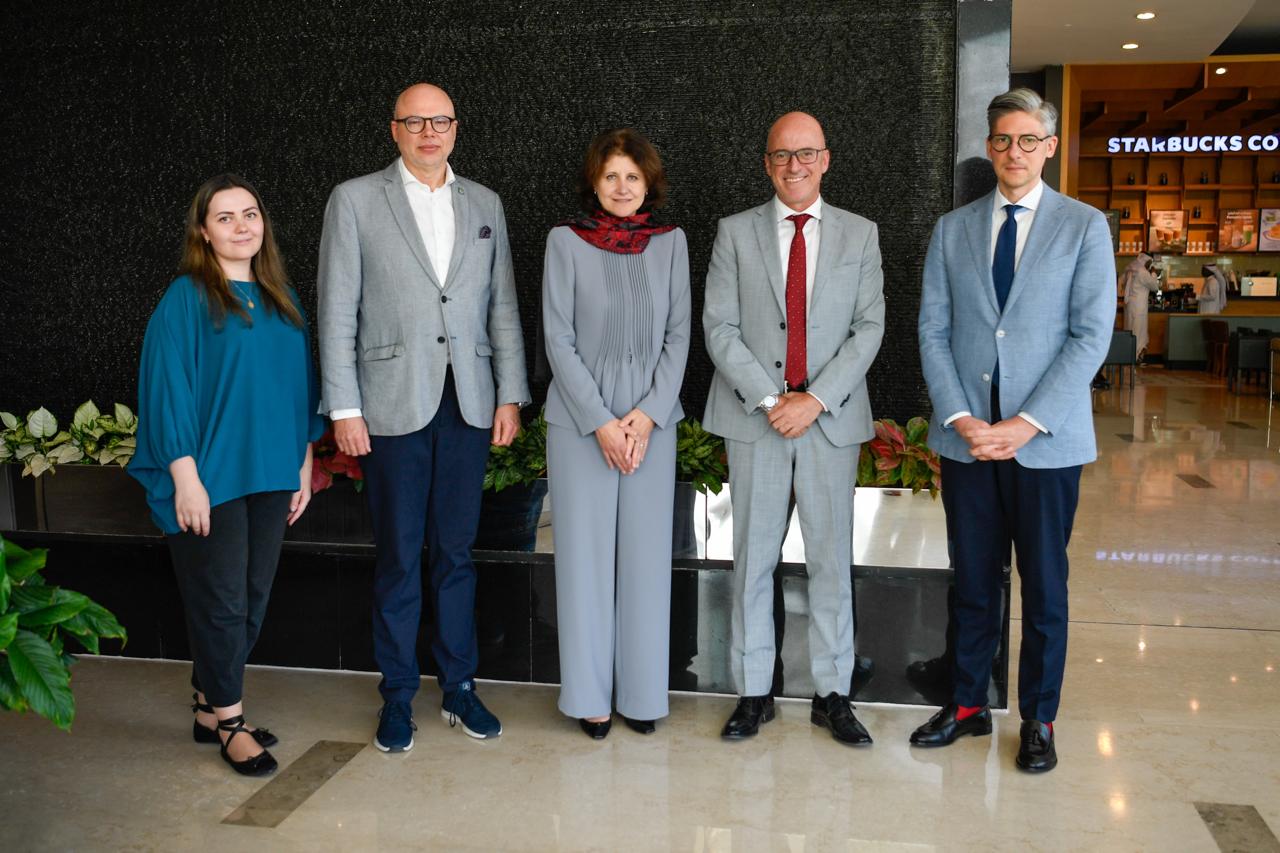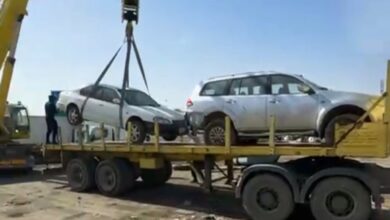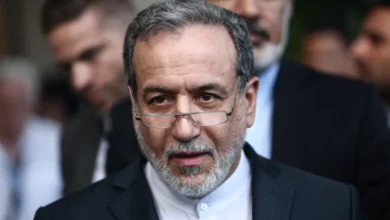Lithuania backs stronger EU–GCC partnership, praises Kuwait’s leadership in fostering regional stability
Lithuania is advocating for a stronger EU–GCC partnership, highlighting Kuwait’s leadership in fostering regional stability and cooperation. Vice-Minister Audra Plepyte emphasized opportunities for collaboration in renewable energy, technology, food security, cybersecurity, and humanitarian efforts, while underscoring the importance of diplomacy, shared values, and a rules-based international order to advance peace, sustainable development, and regional security.

Lithuania backs stronger EU–GCC partnership, praises Kuwait’s leadership in fostering regional stability
By Rabih Kallas
Special to The Times Kuwait
As the European Union (EU) and the Gulf Cooperation Council (GCC) enter a new era of strategic partnership, dialogue between Europe and the Gulf is gaining unprecedented importance.
Lithuania, an active EU member known for its commitment to green transformation, innovation, and principled diplomacy, continues to advocate for deeper cooperation across key sectors such as renewable energy, technology, and food security.

In an exclusive interview, the Vice-Minister of Foreign Affairs of Lithuania H. E. Audra Plepyte highlighted her country’s vision for strengthening EU–GCC relations, commended Kuwait’s leadership during its current presidency of the GCC, and outlined the need for joint efforts to promote stability, humanitarian cooperation, and a rules-based international order.
Strengthening Cooperation in Energy, Technology, and Food Security
The Vice-Minister emphasized that the EU and the Gulf states share a wide range of priorities—from energy transition to innovation and food security—making their cooperation both economically and strategically sound.
Plepyte noted that Lithuania remains strongly committed to the green transformation, with renewable energy accounting for over 32 percent of total energy use in 2023, a figure expected to rise to 55 percent by 2030. The country aims to achieve 100 percent green electricity by 2028, supported by major offshore wind projects in the Baltic Sea.
According to Plepyte, this experience opens new opportunities for collaboration with GCC countries that are also investing heavily in hydrogen and clean energy technologies. She added that cooperation between the EU and the Gulf can drive climate goals, innovation, and secure energy supply chains.
On agriculture and food security, Lithuania and other EU states, she said, Lithuania can provide high-quality products and advanced agri-tech solutions, contributing to sustainability and resilience across regions.
Kuwait’s Leadership and the EU–GCC Dialogue
The Vice-Minister praised Kuwait’s presidency of the GCC, describing it as a valuable opportunity to deepen dialogue and cooperation between the two regions. She said that Lithuania appreciates Kuwait’s role as a balanced regional actor committed to mediation and stability.
Plepyte underlined that Kuwait’s leadership can help advance EU–GCC cooperation in key areas such as renewable energy, food security, and innovation, while also expanding structured dialogue into issues of security, regional stability, and humanitarian cooperation.
She further noted that the EU–GCC Joint Ministerial Meeting in Kuwait represents an important step in preparing for the next EU–GCC Summit of Heads of State in Riyadh, with both sides working to ensure tangible outcomes that will lay the groundwork for a more ambitious partnership.
Promoting Security and Stability in the Middle East
The Lithuanian official affirmed that the EU and the GCC are natural partners in promoting security and stability in the Middle East. She stressed that the EU brings diplomatic experience and a commitment to multilateralism, while the GCC contributes deep regional understanding and credibility. Together, these strengths can help de-escalate tensions, encourage diplomacy, and foster peace across the wider region.
Shared Values on Ukraine and International Law
Addressing the war in Ukraine, the Vice-Minister drew parallels between Lithuania and Kuwait as small nations that have both experienced foreign aggression and understand the importance of international law.
She expressed appreciation for the Gulf’s principled support for Ukraine’s sovereignty and the constructive role of regional partners in humanitarian efforts, prisoner exchanges, and peace mediation. She urged continued Gulf engagement to press Russia toward respecting international law and ending its aggression.
She reaffirmed Lithuania’s position that sanctions on Russia must remain and be strengthened to ensure accountability. The war, he added, underscores the importance of diversifying energy partnerships—an area where Europe and the Gulf can play a decisive role in shaping a secure and sustainable future.
Expanding Cooperation in Cybersecurity and Defense
The Vice-Minister emphasized the growing need for cooperation between Europe and the Gulf in cybersecurity and defense, particularly in light of hybrid threats revealed by the war in Ukraine Plepyte noted that both regions face similar risks, including cyberattacks, disinformation, and drone incursions.
She pointed out that Europe offers strong expertise in cyber resilience and regulatory frameworks, while Gulf states bring innovation and agility. Joint efforts, she said, can strengthen both digital and societal resilience.
Lithuania–Kuwait Relations: A Partnership Rooted in Friendship
Reflecting on bilateral relations, the Vice-Minister described Lithuania and Kuwait’s partnership as one built on mutual respect and goodwill. She recalled Kuwait’s early support after Lithuania regained independence, including scholarships and cultural exchanges that continue to this day.
She highlighted education as a cornerstone of cooperation, noting Lithuania’s interest in welcoming more Kuwaiti students, particularly in fields such as medicine, technology, and engineering.
She also cited growing collaboration in agriculture, food production, renewable energy, and research, as well as the signing of a Memorandum of Understanding on political consultations earlier this year.
Lithuanian products, including dairy and grain, are already available in Kuwaiti markets, and the Vice-Minister expressed optimism about expanding trade and technological partnerships further.
On Gaza and the Path Toward Peace
Turning to the ongoing crisis in Gaza, the Vice-Minister expressed deep concern over the humanitarian situation and reaffirmed Lithuania’s commitment to providing aid and supporting respect for international humanitarian law.
She voiced hope that the ceasefire initiative led by U.S. President Donald Trump would succeed in ending hostilities and ensuring the release of hostages. Both the EU and the GCC, she said, support this U.S.-brokered effort, which offers a chance to restore hope and stability.
She reiterated that Lithuania and the EU remain steadfast in their support for a two-state solution, grounded in international law and ensuring the legitimate aspirations and security of both Israelis and Palestinians.
Lithuania, she concluded, remains committed to working with Kuwait, the GCC, and the wider international community to advance peace, development, and a rules-based global order.
Follow The Times Kuwait on
X, Instagram and Facebook for the latest news updates












